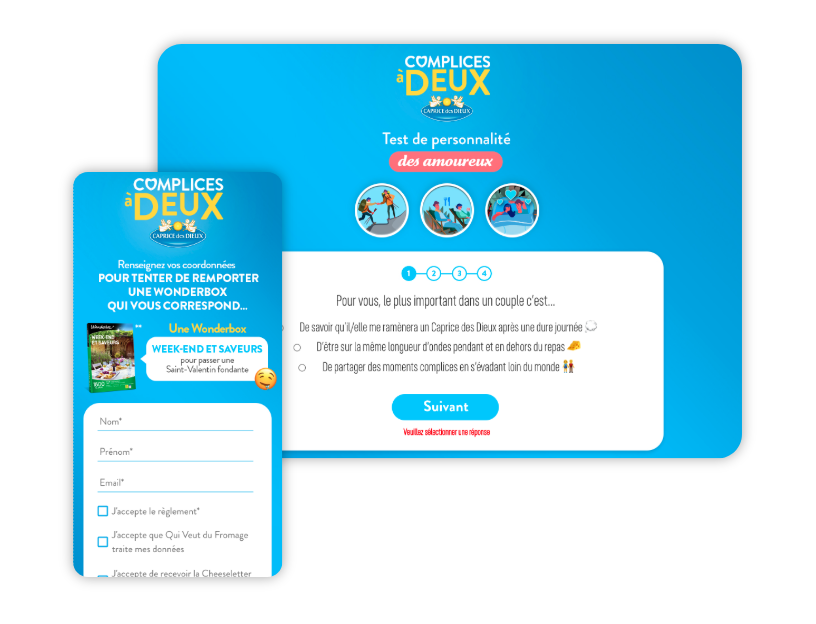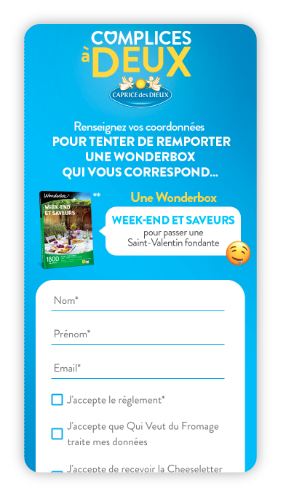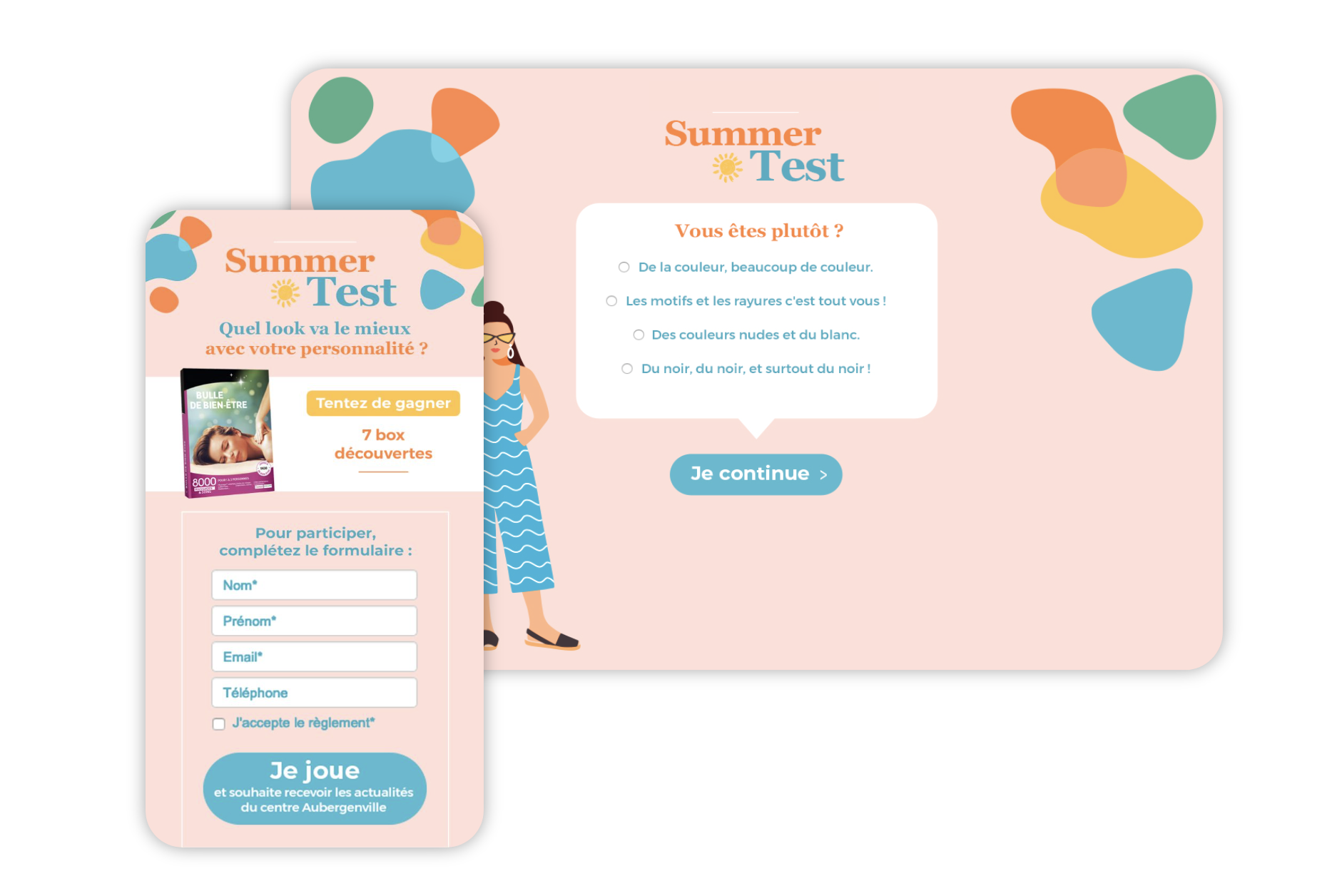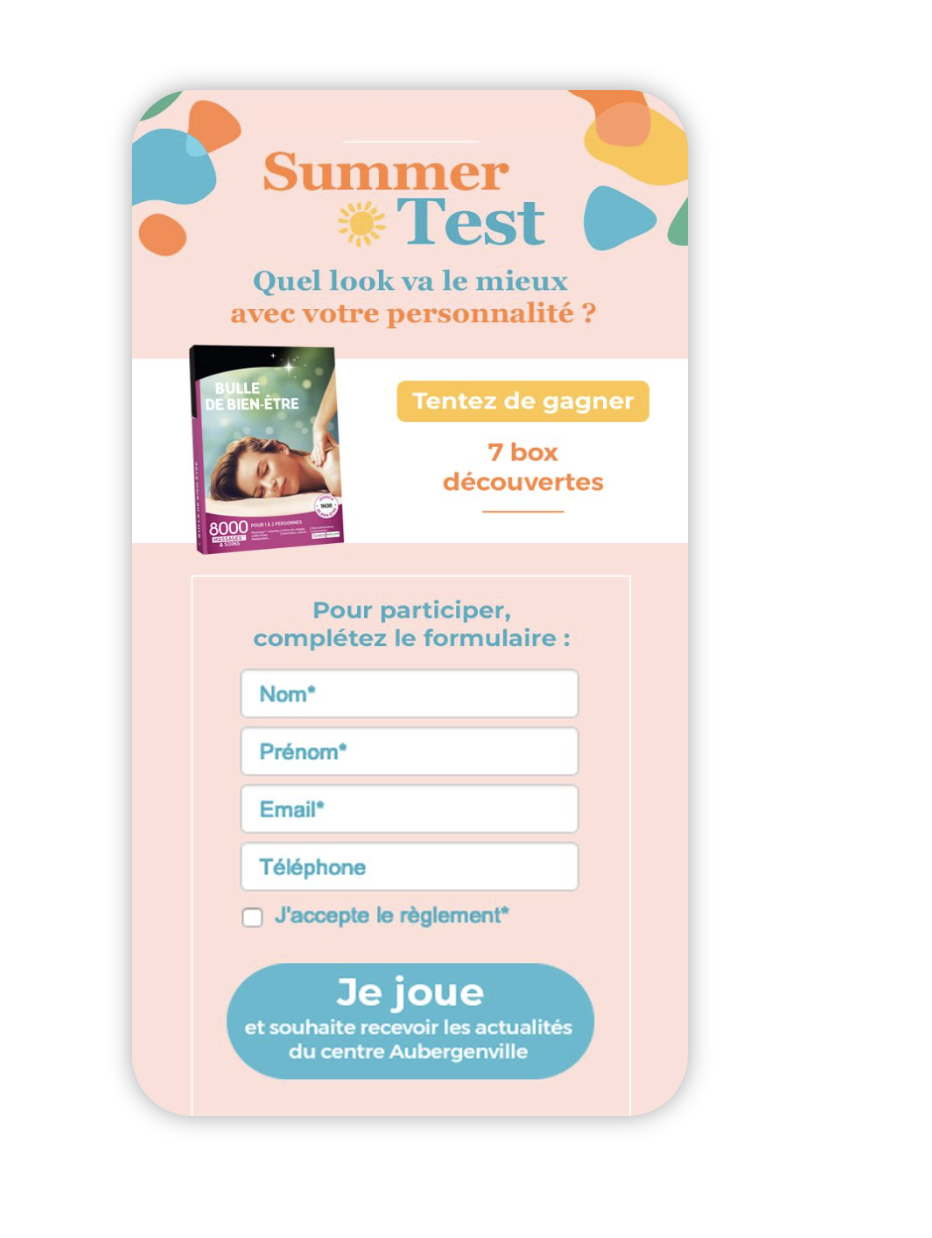The secret ingredient of impactful communication is knowing who you’re talking to and adapting your message to each consumer (or each consumer segment). To get to know their audience and understand their needs, brands can share a marketing game in the form of a personality test.
This fun, interactive marketing format is also a tool for collecting relevant data on prospects and customers. Thanks to this mechanism, companies can qualify their database and personalise their purchasing experience according to each profile.
In this article, we share with you the uses of personality test in your marketing strategy. You’ll find practical advice on how to create a personality test, and how to adapt this format to your objectives.
Why create a personality test ?
The personality test is a format that is recognisable to users, who have undoubtedly already completed one. While the paper version was purely for fun, the digital version has become a marketing tool for brands that want to get to know their target audience better. All the while offering them a personalised and captivating shopping experience.
Here are the different ways in which a personality test can optimise a marketing strategy.
1. Refine your customer knowledge
The main purpose of a personality test, for the person completing it, is to learn more about themselves. For the brands that distribute them, this format serves the same purpose: to collect data on the preferences, needs and aspirations of their customers.
The advantage of a personality test over a traditional data collection format is that it provides specific insights. The retailer will be able to segment its audience finely and qualitatively (in terms of purchase intentions).
Example: ASOS shares a personality test in the form of a Quiz ‘What is your ideal wardrobe?’. The aim of this mechanism is to find out its customers’ fashion preferences in order to offer them selections of items. The brand was able to segment its users according to their style (casual, business, sportswear).
2. Boost brand awareness and generate new leads
The latter can capitalise on this reputation to generate traffic on its platforms (digital or physical), collect email addresses (via a test access form), etc. It’s a powerful tool for fuelling nurturing campaigns and expanding your database.
Example: On Valentine’s Day, the Qui Veut du Fromage brand launched a personality test to promote Caprice des Dieux, giving the brand high visibility. Integrated into a global campaign (TV, digital and in-store), the game engaged customers and prospects, while stimulating sales. It was also used to recruit qualified leads for retargeting campaigns.


3. Convert new customers, online or in retail (drive-to-store)
This format (distributed via media campaigns on social networks) can enable brands to redirect users to their sales channels. Depending on their strategy, they can direct them to their e-commerce site or in-store as part of a drive-to-store strategy. This marketing game can be used as a lever for upselling/cross-selling when it is shared post-purchase (in the order confirmation email).
Example: Altarea Cogedim launched the Summer test campaign to energise its shopping centres during the summer sales period. The aim of this personality test was to generate traffic and stimulate purchases. At the same time, it engaged the community and boosted the brand’s visibility. The result was the recruitment of new fans, leads and opt-ins. All of which contributed to enriching the database and maximising the impact of the summer highlight.


4. Customer satisfaction and loyalty: strengthening long-term relationships
In this way, brands improve customer satisfaction and loyalty by offering them an enriching experience.
Example: With its ‘Which series character are you? test, the VOD platform Netflix was able to create a fun interaction and engage its subscribers. All this while gathering data on their content preferences to refine its recommendations and increase satisfaction.
Our tips to create a personality test
To create an impactful personality test, it’s important to design a campaign that’s tailored to your objectives. Here’s our advice on how to optimise this format and turn it into a more effective marketing tool!
1. What results and objectives to aim for with a personality test
The first step is to identify the objectives that the brand wants to achieve (data collection, visibility, improving conversion rates, etc.). Depending on these objectives, the questions asked and the channels through which the test will be distributed will not be the same. For a conversion objective, the mechanics will be more important in-store on an interactive kiosk or integrated into the purchase path on the brand’s e-commerce site/application.
2. How to personalise a personality test?
Pour qu’un test soit impactant, il doit s’intégrer dans l’univers de la marque et répondre aux attentes de son audience. Il est important de bien :
- Personnaliser les questions : en adaptant la thématique et la tonalité afin que le format soit immersif et engageant ;
- Offrir des résultats sur mesure : proposer des profils personnalisés qui correspondent aux catégories d’utilisateurs ciblés. La marque peut associer chaque résultat à une recommandation.
- Adapter le design de la mécanique en respectant la charte graphique de l’entreprise pour garantir une expérience cohérente avec son image de marque.
3. What types of questions should be included in a personality test?
To ensure user engagement, it is advisable to vary the question formats:
- Single or multiple choice questions to collect product preferences;
- Rankings or associations to measure tastes or purchasing behaviour;
- Open-ended questions to incorporate more specific opinions (optional).
4. How to manage prizes to boost participation?
- Choose rewards that correspond to the target audience and are in line with the brand’s universe or the marketing highlight;
- Opt for automatic distribution to make prize management easier. With Adictiz, it is possible to configure the delivery of rewards (promotional codes, vouchers), which makes the user experience much smoother;
- Establish clear rules for participants, such as session limits per person, winning conditions, etc.
5. Can I track and analyse the results of my campaign?
Yes, most tools, like Adictiz, include a reporting module that allows you to :
- Real-time monitoring of the data collected
- Analyse shared responses to refine customer knowledge.
- Export the data to your CRM (via a suitable connector) for future marketing actions: personalised emailing sent from the same platform, targeted advertising on social networks, etc.
6. Can someone take charge of my campaign?
Companies that lack the time or expertise to design and manage their marketing campaign can outsource it to a specialist team. At Adictiz, our team can take care of :
- Design of the marketing game (questions, results, graphics).
- Putting the campaign online and setting its parameters;
- Publicising and publicising the campaign;
- Performance monitoring and analysis.
7. How to ensure the success of a personality test?
Pour finir, voici quelques conseils pour maximiser l’impact du test de personnalité.
- Diffuser le test sur plusieurs canaux (site web, réseaux sociaux, newsletters).
- Privilégier un message clair et un parcours utilisateur simple pour inciter à la participation.
- Mesurer les performances et ajuster la campagne si nécessaire.
Conclusion
Online personality testing is a powerful marketing tool that will enable your company to engage its audience at every stage of the customer journey. With a solution like Adictiz, you have the tools and expertise you need to design high-impact campaigns that are tailored to your needs and memorable for your users.






